Photographs: Reuters BS Reporter in New Delhi
The finance ministry on Sunday said it was serious about meeting the fiscal deficit target, and consultations to rein in oil subsidies would begin with the Opposition and state governments after the Budget session.
In the customary post-Budget interaction with business chambers, Finance Minister Pranab Mukherjee also expressed hope that the Reserve Bank would reverse its monetary tightening in the coming months as core inflation came down, boosting sagging industrial sentiments.
. . .
Union Budget 2012-13: Complete coveragePranab 'confident' of keeping subsidies low
The comments come as critics find the Budget target of reining in fiscal deficit for the next financial year at 5.1 per cent of GDP ambitious, as subsidies seem inadequate.
As the Budget came over a week after the dismal performance of the Congress in the Assembly polls, the finance minister was candid enough to admit that he was "extra-careful" because of political compulsions.
The minister also assured the industry that the government was making a serious effort to reduce time lags in clearing projects.
A Ficci representative said she believed subsidies would exceed Budget estimates. But Mukherjee said, "I am confident we shall keep subsidies below two per cent of GDP in the next fiscal and reduce it to 1.75 per cent over the next three years."
. . .
Union Budget 2012-13: Complete coveragePranab 'confident' of keeping subsidies low
Chief economic advisor Kaushik Basu said, "We are very serious about the fiscal deficit target; 5.1 per cent is a very credible target."
Economists do not agree with the government's view. Economists at credit rating agencies said the deficit target would most likely overshoot by 20-40 basis points to 5.3-5.5 per cent as the projected revenue increases and subsidy cuts fail to materialise.
Slippages in direct tax collections by Rs 32,000 crore (Rs 320 billion) over the Budget estimates in 2011-12, missing the disinvestment target by almost Rs 26,000 crore (Rs 260 billion) and ballooning of subsidies by Rs 1.73 lakh crore (Rs 1.73 trillion) are slated to push up the fiscal deficit to 5.9 per cent of GDP, against 4.6 per cent pegged in the Budget estimates.
. . .
Union Budget 2012-13: Complete coveragePranab 'confident' of keeping subsidies low
In this scenario, economists have raised doubts about the finance ministry's optimism to cut the deficit by 0.8 percentage points to 5.1 per cent of GDP in 2012-13.
Much of the criticism relies on subsidies.
For example, the government had provided for just Rs 23,640 crore (Rs 236.4 billion) for oil subsidies in Budget estimates for this financial year, but revised estimates were almost three times at Rs 68,481 crore (Rs 684.81 billion).
For 2012-13, the government has provided Rs 43,580 crore (Rs 435.8 billion) for the subsidy.
Realising that even this amount may not be sufficient if global crude prices continue to hover over $120 barrel, the finance minister said the government would call the meeting of Opposition parties and state government to take corrective steps.
. . .
Union Budget 2012-13: Complete coveragePranab 'confident' of keeping subsidies low
Image: Indian Air Force 'Suryakiran' jet trainers perform during an air show.Photographs: Danish Ismail/Reuters
The government had assumed global crude prices to be $90 a barrel at the time of making the Budget for 2011-12.
That was revised to $115 a barrel in the Budget, presented two days ago. For the next financial year, the Budget had assumed global crude prices to be $120 a barrel.
But of late, the Indian basket price has been $122-125.
Even as there is a debate over diesel decontrol, petrol prices are not fully out of the administrative control mechanism.
Even when global prices rise, there is no mechanism to pass on the burden to domestic customers.
As such, subsidies of the government increase for oil marketing companies as they go for losses.
. . .
Union Budget 2012-13: Complete coveragePranab 'confident' of keeping subsidies low
Part of the contribution is also made by upstream oil companies.
Also, Rs 42,000 crore (Rs 420 billion) from telecom spectrum sale, and Rs 30,000 crore (Rs 300 billion) from disinvestment may depend on factors outside government control.
Tax buoyancy would also be there when the economy grows by 7.6 per cent, as estimated in the Budget, economists said.
Mukherjee, however, said, "I am not making a tall claim by pegging growth at 7.6 per cent for the next fiscal."
Assuring the industry that the government is serious about expeditious clearance of projects, the finance minister said, "Currently, we are addressing mega power projects, coal linkage and environmental clearances -- all three taken together."
. . .
Union Budget 2012-13: Complete coveragePranab 'confident' of keeping subsidies low
Chambers -- Confederation of Indian Industry, Federation of Indian Chambers of Commerce and industry, Assocham -- representatives said the rise in excise duty and service tax rates would increase the input costs, fuel inflation and lead to further slowing in economic growth.
As industry representatives talked about the Goods and Services Tax and Direct Taxes Code, the finance minister said the law for DTC would be introduced this financial year so that the Income Tax Act could be replaced from April 1, 2013.
On GST, he said work on a model GST law was on, while the standing committee of Parliament was yet to give its report on the constitutional amendment Bill to roll out GST.
Union Budget 2012-13: Complete coverage
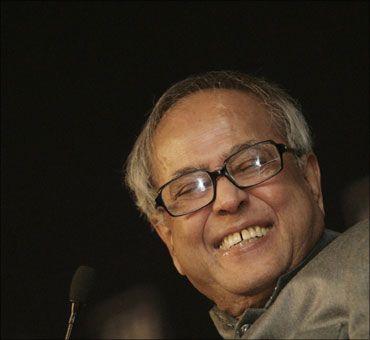
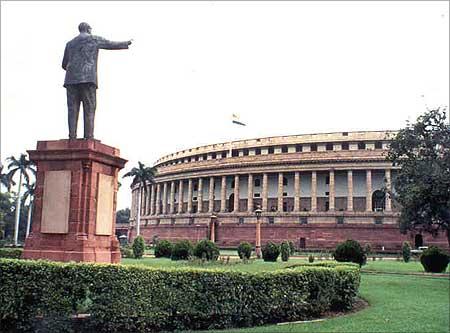
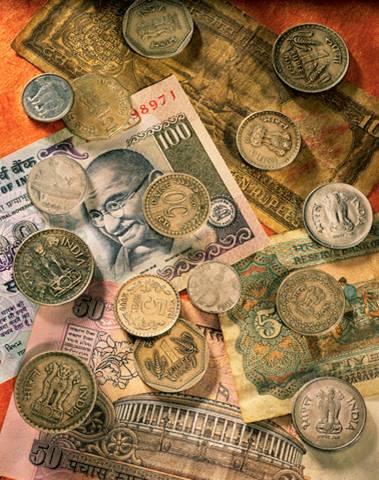
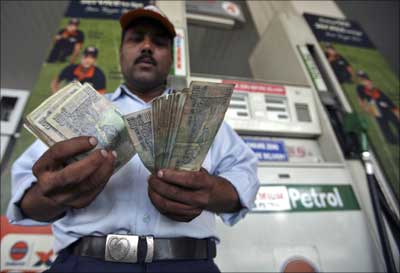

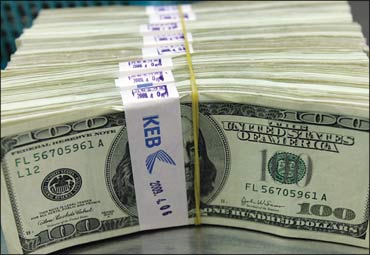
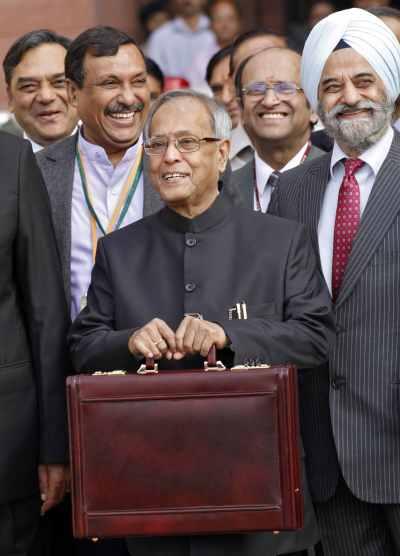

article